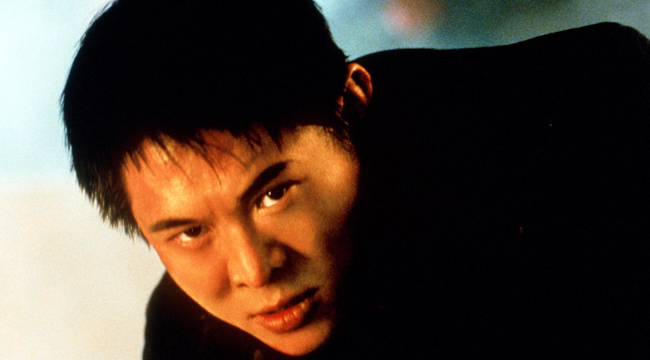
The Matrix was conceived as a meeting of two cultures: The Wachowskis so badly wanted to blend Western and Eastern cinematic techniques — namely the martial arts badassery of Southeast Asian movies — that they hired legendary choreographer and filmmaker Yuen Woo-ping. It was, however, distinctly lacking in major Southeast Asian martial arts stars. But that wasn’t for lack of trying: The filmmakers aggressively courted the mighty Jet Li, but he turned them down. And for good reason he didn’t want to get his moves stolen.
According to Abacus (by way of The A.V. Club), Li recently appeared on a talk show in his native China, in which the actor — who around that time was already appearing in Hollywood films like Lethal Weapon 4, Romeo Must Die, and The One — revealed why he turned the Wachowskis (and Keanu) down.
The actor was approached about playing the role of Seraph, one of the deep state Matrix mystics that pops up in the two sequels. But Li was not particularly taken with the Wachowskis’ then-new digital ways. (Collin Chou took the role instead.)
“I realized the Americans wanted me to film for three months but be with the crew for nine,” Li said during appearance. “And for six months, they wanted to record and copy all my moves into a digital library. By the end of the recording, the right to these moves would go to them.”
In essence, Li would be digitized and his likeness could be used for whatever, all while he was still in the prime of his career. “I was thinking: I’ve been training my entire life. And we martial artists could only grow older. Yet they could own [my moves] as an intellectual property forever,” Li said. “So I said I couldn’t do that.”
The talk show was one of the first public appearances Li has made in months. In 2013, the performer was diagnosed with hyperthyroidism and spinal problems. Pictures of Li, only 55, looking frail and emaciated surfaced online earlier this year, shocking his fans. Li will still be appearing in Disney’s live-action remake of Mulan, which will be his first screen appearance since the 2017 short film Gong Shou Dao.
(Via Abacus and The A.V. Club)
